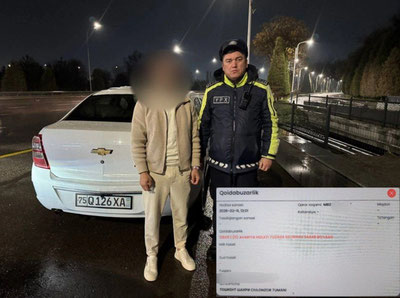In Uzbekistan, the issues related to preventing defamation and insult on the internet have become more complicated in recent years. Of course, similar legal standards for criminally restraining people from defamation and insult have been adopted in countries close to ours, such as Kazakhstan, the Kyrgyz Republic, Azerbaijan, Turkey, and Russia. However, the rapid development of the internet and the increase in information exchange through social networks is leading to an increase in these negative experiences.
Sometimes, it is observed that distinguishing between defamation and insult can also be difficult. Those not very knowledgeable in law might struggle to differentiate whether a statement is defamatory or insulting.
It should be noted that insulting is intentionally demeaning someone's dignity and honor with rudeness. In this case, the person is disparaged sharply, and a negative valuation is given. Insult involves the use of swearing, and coarse words to denigrate someone's dignity and honor. In determining an insult, the truthfulness or falsity of the statement is not important, but rather its rude, unethical expression is crucial. For example, even if the statement made in a comment on someone's social media page is true, it is considered an insult if it involves cursing and rudeness.
What can be said about defamation? Knowingly spreading a falsehood aimed at disgracing an innocent person is considered defamation. In this case, the defamer must be aware that the information being spread is likely to disgrace another person and that this information is far from the truth. That is, deliberately spreading falsehoods to shame someone is required.
To prevent these two illegal actions, several legal measures and steps have been considered in our country, but this process also encounters a series of intractable problems.
Among these, although there are necessary norms in the laws against defamation and insult, the prolongation of investigation processes often prevents timely and decisive court decisions. Especially since the exchange of information on the internet happens quickly and before the aggrieved person can defend themselves in court, public credibility may lead to the proliferation of incorrect opinions.
The role of social networks and internet platforms here is distinct. Social networks (for example,Facebook, Instagram, Twitter) and internet platforms (Youtube,Telegram)are widespread in Uzbekistan. However, the outcome of disseminating information on these platforms makes it very complicated to prevent defamation and insult. The system for posting news and correctly addressing injustices on the internet often does not yield results.
Therefore, a number of actions must be taken to prevent defamation and insults. The refinement of legal mechanisms, cooperation between social network admins and relevant government bodies, along with the development of information technologies, are of significant importance in solving this problem while protecting the rights of citizens’ inviolability.






